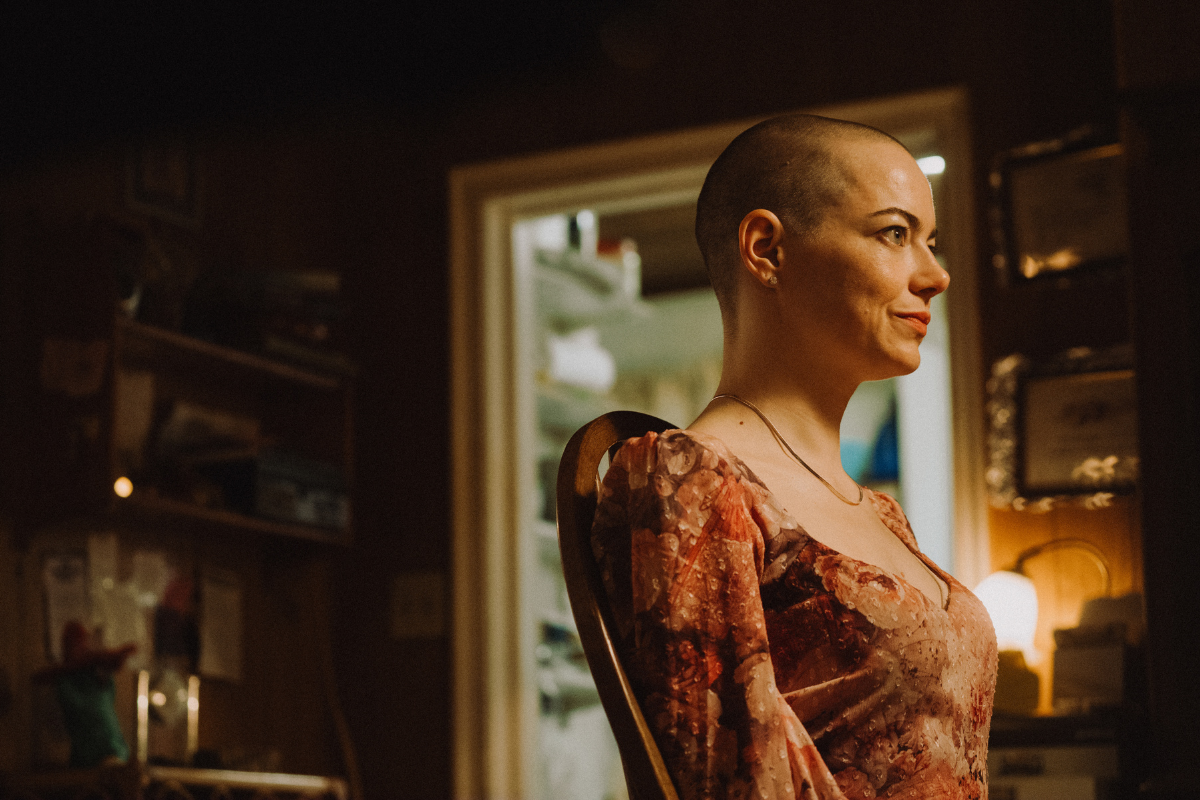BREAK INTO SCREENWRITING: 10 Things I Figured Out In Hollywood
If you are a writer trying to break into screenwriting and you want to go to Hollywood, producer Margaret South some ideas on how to get started.
Originally published in Script magazine March/ April 2003
Margaret South, co-founder with Bette Midler and Bonnie Bruckheimer of All Girl Productions, has developed scripts for Disney, Fox, and Tri-Star Studios. She produced the feature films Beaches, For the Boys, and Man of the House.
Here’s a dirty little secret that’s known only by a very small and select group of people. Ready? Listen. It’s not that hard to get started in Hollywood. In fact, it’s simple. And I’m not just talking about being lucky. Yes, luck can play a huge part, and yes, I was super lucky. I moved from New York to L.A. with a modest resume, marginal typing skills, and zero dollars (see the section on raisins and peanut butter), and within a couple of years, I found myself hanging out in limos with movie stars. I could call up anybody I wanted and have lunch with them (for free and at the best restaurants) or take a meeting or just gab on the phone. That was my job. I got paid for this. I even went to the Academy Awards®, then to Spago with Bette Midler where I sat at Swifty’s table and met Madonna and Rosie O’Donnell and Walter Cronkite and Joan Collins. No doubt about it, luck played a big part; and I had a lot of fun.
Even better than all the “fun” stuff was the fact that I really loved my job. I had always considered myself a writer and planned a career as a top screenwriter with a house on the beach in Malibu. (It was a fantastic house with many important meetings taking place poolside.) But I ended up talking to other writers all day long about their ideas, listening to their stories and doing what I could to help them. And I like it. Writers are obsessed. Writers are intense. Writers are about life and death. To me, working with writers turned out to be even more fun than writing itself. So, if you are a writer or if you’re someone like me who likes writers and you want to go to Hollywood, here are some ideas on how to get started.
10. Get a Job. Any Job. Whether you have a trust fund or are lucky enough not to have a cent to your name, you need to learn the business. The best way to cruise around and see what’s what is temping. A day here, a week there. No commitment. You’ll float around. You’ll meet people. And you’ll learn. You might work at William Morris for a few days filling in for someone who’s sick and, in the meantime, getting a look at the thousands of spec scripts lying around. A painful reality check, yes, but you need to know what you’re up against. You need to know how to talk to agents on the phone. You need some experience in the business.
By the time I left New York and headed West, I was 29 years old, which by Hollywood standards is over the hill. Ancient, even. But I had one thing going for me—a little experience. I’d already been an assistant at the Long Wharf Theatre Company in Connecticut, a reader for the New York Shakespeare Festival, an associate producer at what would become the Arts and Entertainment Network, and I’d done some consulting work for ABC Daytime watching soap operas and writing critiques ($90 a week but probably the best job ever). When I got to L.A., I found a cheap place to live, and I stocked up on peanut butter and raisins and hoped I could make it last a couple of months. I called everybody on the list I’d put together from contacts at ABC, A & E, the theatre world, and friends of friends of friends. Surely, with contacts like these, I’d land something in no time! I visited dozens of offices, resume in hand, and met with warmth and encouragement and plenty of advice (see #2), but no job was given.
Then the peanut butter and raisins ran out. The rent was due, and I couldn’t afford to wait for the phone to ring. I had to get a job before Lou, my landlord, tried to deposit my rent check. I went to a temp agency in Burbank, took a typing test and started at William Morris working in the literary department. Some days were tough, but I scoped out a very nice agent who soon told me about a couple of spots at production companies that had just come available. One job was as secretary to a vice president of production for Paramount. There was a great salary, regular hours, incredible benefits, and, as if all this weren’t enough, I’d have my own parking space, which, as studio perks go, is big time.
The other job working for a producer at Ron Howard’s company, (pre-Splash, before it became huge), paid barely enough to live on (maybe not enough, come to think of it), no benefits and no parking space. But I had a feeling. This was a small office with a few projects in development, and it seemed as if there might be more opportunity there than at the big, fancy vice president’s office. I took the job, and my wonderful boss Tony Ganz helped me out with the rent; I parked way off the lot with the other secretaries and started reading scripts and meeting writers. Later, when our television series Maximum Security went into production at HBO, I signed on as creative consultant—same pay and I still had to answer phones, but I was on my way.
9. Seek Advice and Listen To It. People in Hollywood are more than happy to tell you how they got started in the business. They want you to succeed, and they want to give you advice. Listen to them. Don’t bug them but keep in touch with them. Let them know how their advice helped.
One woman producer I visited spent an hour with me, regaling me with tales of how she got her start living with friends in a crappy little apartment somewhere under the freeway—how she shlepped her boss’s dry cleaning then got his ear and his respect when she showed she had good taste and a tremendous work ethic. Her advice: Don’t be afraid to be someone’s assistant. Don’t resent doing their personal bidding. Once you’ve picked up someone’s dry cleaning for them and been nice to their kids on the phone, chances are they’ll read your script and give you a leg up. On some of those days when the typing and the phone calls went on and on, and I thought I’d never amount to anything, I thought of her advice and kept on going.
8. Keep writing. Don’t get stuck on one screenplay because you think it’s fabulous and you can’t believe that no one else gets it. Write the next one and the next one. When you get one made finally (and believe me, you can never tell which one it’s going to be; no one can), you’ll have an inventory of scripts that everyone in town will be dying to read. And option. And produce.
Hone your work habits. Write every day. Bette and I, along with our other partner Bonnie Bruckheimer, had many meetings with writers, among them the very charming Julius Epstein. He told us stories about old Hollywood. How Casablanca got made. How, driving home one night over Mulholland, musing over the ending they needed, he and his twin brother spontaneously and simultaneously shouted that now famous closing line, “Round up the usual suspects.” A Hollywood miracle. But what he also told us is that he wrote every day. Every single day, he wrote three pages—no more, no less. No matter what. If it took two hours, great. If it took 12 hours, so be it. Do the math. If, in your life you know you’re going to write three pages a day, that’s a lot of screenplays. And maybe one day, when you’re driving over Mulholland, a “miracle” will occur; and you’ll make movie history.
7. Write in other media. Theatre. Books. Television. All three writers involved with Beaches are examples of huge talent that can’t be stopped. Mary Agnes Donahue wrote poetry before becoming a screenwriter. She now directs as well. Iris Rainer Dart, when she couldn’t get a movie deal to make Beaches, wrote it instead as a novel. It became a big hit summer book, and only then did Disney decide it would make a good film.
Garry Marshall, a funny and charismatic man, was one of the busiest directors in the business after scoring success with a huge television career. Even then, Garry still wrote and directed plays. With all his success, the thing he loved, has loved all through his career, was the theatre. He ran the Falcon Theatre in Los Angeles. He had a play at the Promenade Theatre in New York. Garry also acted. He did what he loved. All these activities nourish each other.
In these days of specialization, I worry that our training is becoming very narrow. When you’re trained in the theatre, you have to do everything. They make you. You get in the habit of knowing that you can do just about anything you set your mind to. When Dennis Hopper, in an interview at the Actors’ Studio, spoke of his art career and was asked if he were an actor first or a painter, he looked puzzled, then answered, “To me, they’re both the same thing.”
Practically speaking, when you write a play, the chances are, you can get it produced. It doesn’t cost that much to rent a little theatre for a limited run and invite everyone you know. Or, you can get a bunch of actors together to read it in your living room. Actors know a lot about drama. They’ll tell you if a scene isn’t working. They’ll tell you if it is working.
Actors are highly-motivated people. If there are good parts in the script, you can bet your life that those actors will help you find a place to put it on. You might even get an actor who wants to produce it for you.
Hollywood is a place where everybody is scared—for good reason. There’s lots of money at stake. If your play opened to fantastic reviews, even if it’s in an abandoned storefront in San Dimas, it’s that much less of a risk for the producer. Somebody already said it was good. So it must be, right?
6. Never give up. Bette, Bonnie and I read a fantastic, hysterical screenplay called Female Suspects by David Chase. Bette had her heart set on starring. It had been written for producer Norman Jewison at Fox and was currently in turnaround, meaning it was available for anyone who wanted to pay off the studio. Meaning, we could buy it. Problem was, they wanted $250,000, which at that time, as they say, was a lot of money. We were at Disney where there was a pretty tough policy on spending huge amounts of money on scripts, plus the powers that be at that time thought the main character wasn’t likable enough. Bette argued that she could make it likable. Let’s face it, when Bette argues for something, she goes all out. Even though she was a big star, she did not always get her way. In this case, she did not prevail against the judgment of the studio. Female Suspects would not be produced at Disney. Even though Bette Midler adored his work, David Chase was never approved as a writer on any of our projects. Cut to years later, David has a hit show on HBO, The Sopranos; and you can bet anything that Female Suspects will be made with David Chase directing. Never give up.
When Bette would get discouraged (yes, even Bette Midler could get discouraged), Jeffrey Katzenberg would remind her that most of the time you’re going to get a “no”—that even he would make 100 phone calls, and 99 of them would be “no.” But you need only one “yes.” So you keep going. Never give up.
5. Get a life. There are times when Hollywood sucks, no two ways about it. And that’s putting it delicately. But, it’s just a job. No matter how much you love it, it’s not going to love you back. The highly-successful producer Linda Obst advises women in Hollywood, “Get married and stay married.” Whether it’s marriage or kids or a hobby or a puppy, you will be doing yourself a favor if you enrich your life as much as possible. You’ll be a better person for it and a better writer, too.
4. Forgive. Forgive. And forgive. There are always going to be stupid development people and producers like me who just didn’t get your script. We didn’t like it because a) we were too dumb to recognize it’s a really good piece of work that hasn’t been seen before, or b) too scared to stand up for a tough sell even though it’s obviously got something important to say; and you’re a writer who’s going to be heard. We can’t help it. We don’t always make the right decisions. We have to read a lot of material. We’re under a lot of pressure and, yes, we’re scared. So give us another chance. We do make mistakes, and we humbly ask you to forgive us and send us your future work.
3. Make a movie. These are such exciting times for all screenwriters and filmmakers. Anyone with an idea in his head can go out and buy a digital video camera and shoot a film. My advice to all writers is to write something simple—a character piece, maybe, with no special effects or big crowd scenes—and get a few actors together. You’ll be surprised how eager they’ll be to help you launch your career. Because, of course you’ll be hiring them on all your future big-budget studio projects later.
2. Get to know other writers. Particularly successful ones. Just for fun, send fan letters to your favorites. You never know when you might hear back from one of them. And when you’re famous, wouldn’t you like to hear from some of your fans?
1. The number one most important thing is ... Be nice to the assistant. Remember, when you call an agent or a producer or an executive because you’ve sent them your script or because you’d like to send your script, the first person you speak to will be the assistant. A lot of people are dismissive to the assistant—or just plain mean. This attitude is so dumb. Dumb! For one thing, the assistant is more often than not the one who decides if you get called back the same day or maybe a week from Tuesday or maybe your number never really makes it onto the phone sheet. Also, the assistants know everything that’s going on—what project is happening where—whose job is on the line this week. Everything. If nothing else, they’re always good for a nice, juicy piece of gossip.
Remember, today’s assistant is tomorrow’s head of the studio. She’s reading scripts like mad, trying to get ahead. And if you’re nice to her, maybe she’ll take you along with her on her way to the top.
If you’re in town, take the assistant out to lunch to a really swanky restaurant that serves great big portions. By all means, let her order anything she wants on the menu. Could be she’s only had raisins and peanut butter for the last few weeks. Then, pitch her your story. Ask her opinion. She probably knows what she’s talking about. To be sure, she knows as much as anyone else in town does. Down the road, when she gets her big development job, you might be one of the writers she has in for a meeting with the producer, star or executive who has faith in her.
I hope these tips are of some use to you. As you proceed with your own literary career, whatever your path may turn out to be, I ask you one thing: Write great stories. Write stories about average people in incredible circumstances, or write stories about amazing characters who inspire and delight us. Tell me a story I’ve never heard before. Put me on an emotional roller coaster. Make me laugh and make me cry. I will be forever grateful. Good luck.
- HBO Exec Chris Salvaterra Offers Perspective on The Business Side of Screenwriting
- Balls of Steel: 11 Ways to Develop Your Screenwriting Hustle
- Feel My Pain: Travails of a Once Unproduced, Undernourished Screenwriter
Moving to L.A.? Find unexpected industry jobs in
Hire Me, Hollywood!
Top screenwriting and film publication, founded in 1989, published by Active Interest Media. Twitter: @scriptmag







